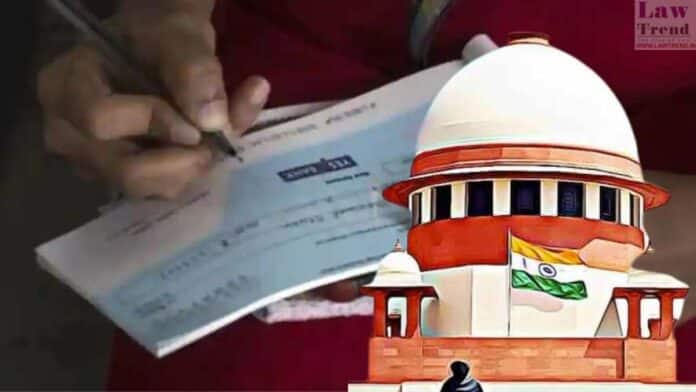In a significant ruling that underscores the distinction between company directors and the company itself, the Supreme Court of India held that authorized signatories of company cheques cannot be deemed liable as “drawers” under Section 148 of the Negotiable Instruments Act, 1881 (NI Act), limiting their responsibility for depositing compensation during appeals against convictions. The




